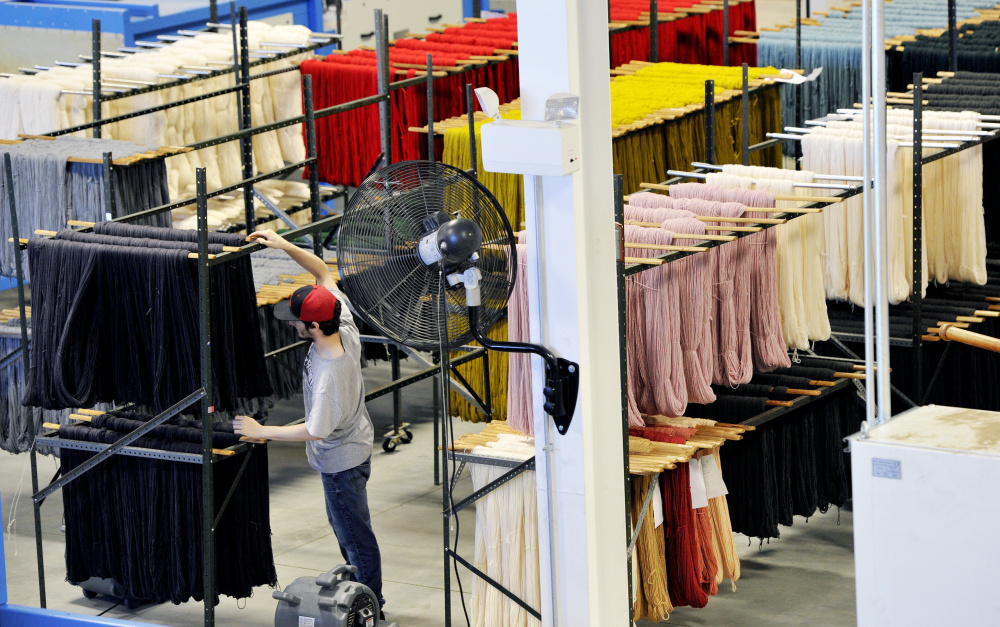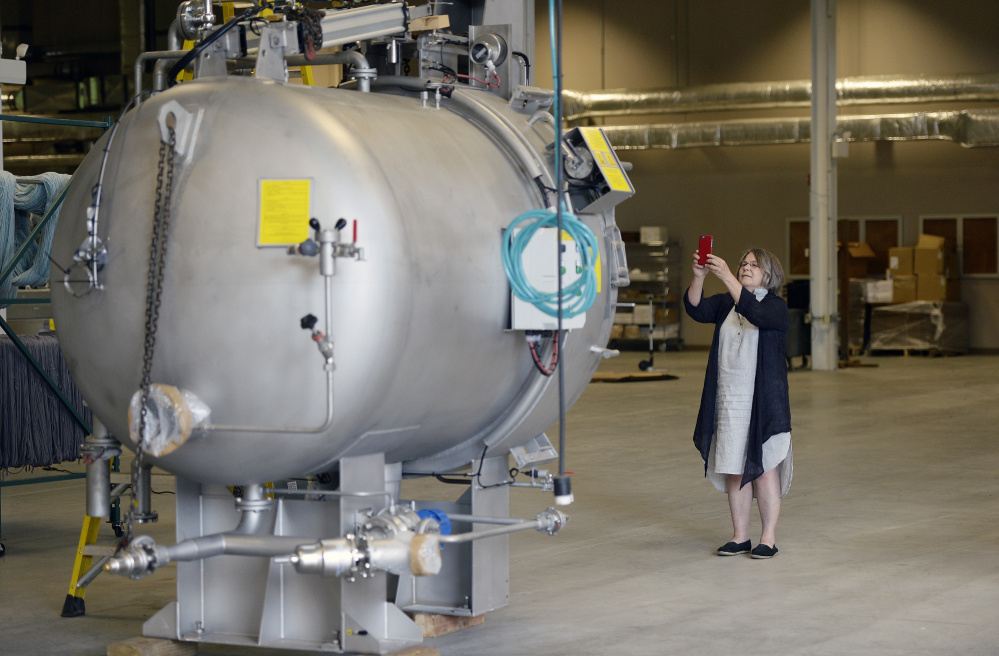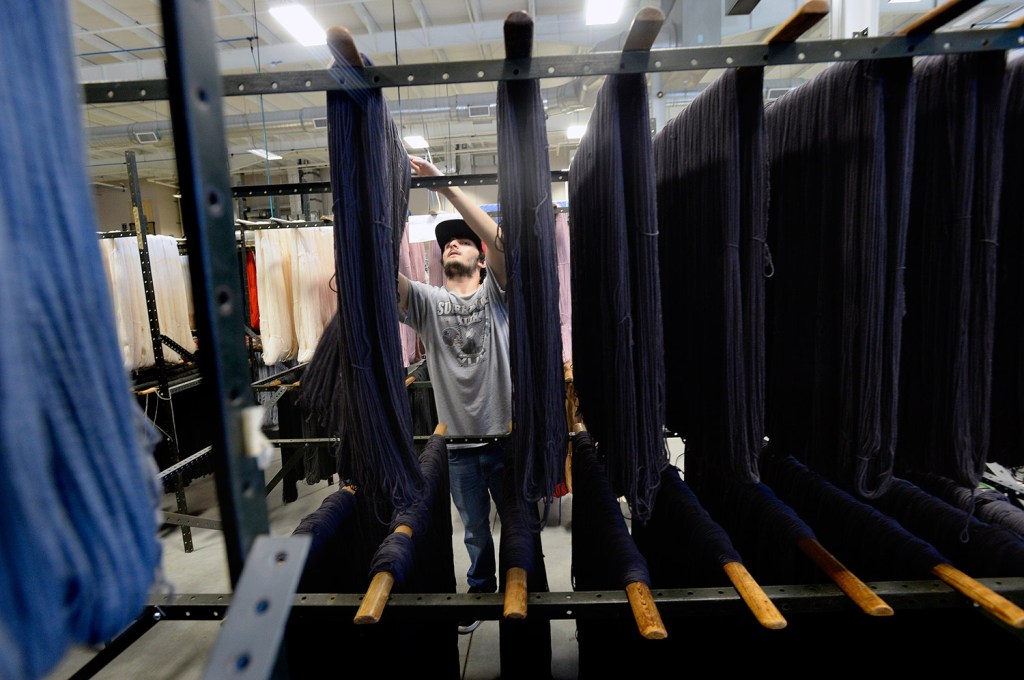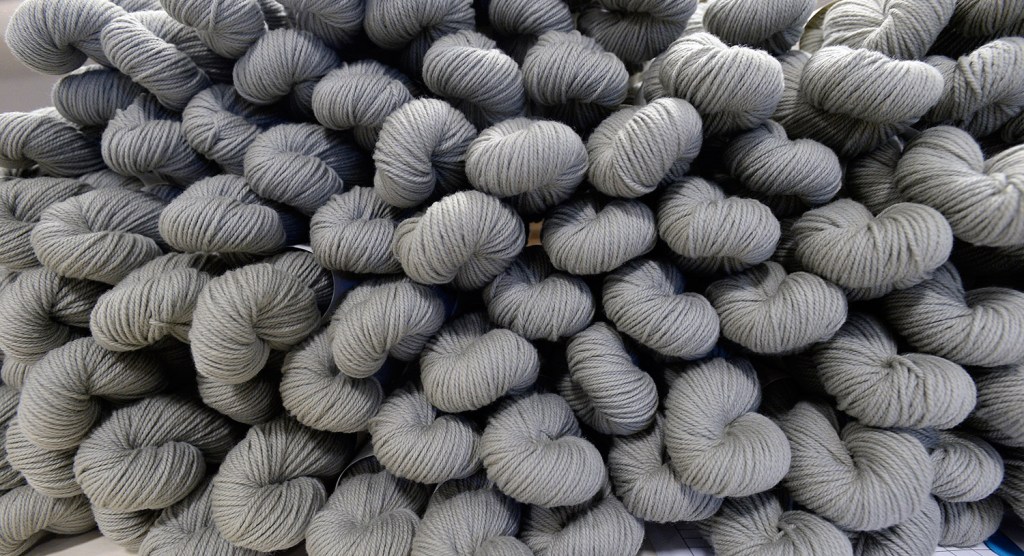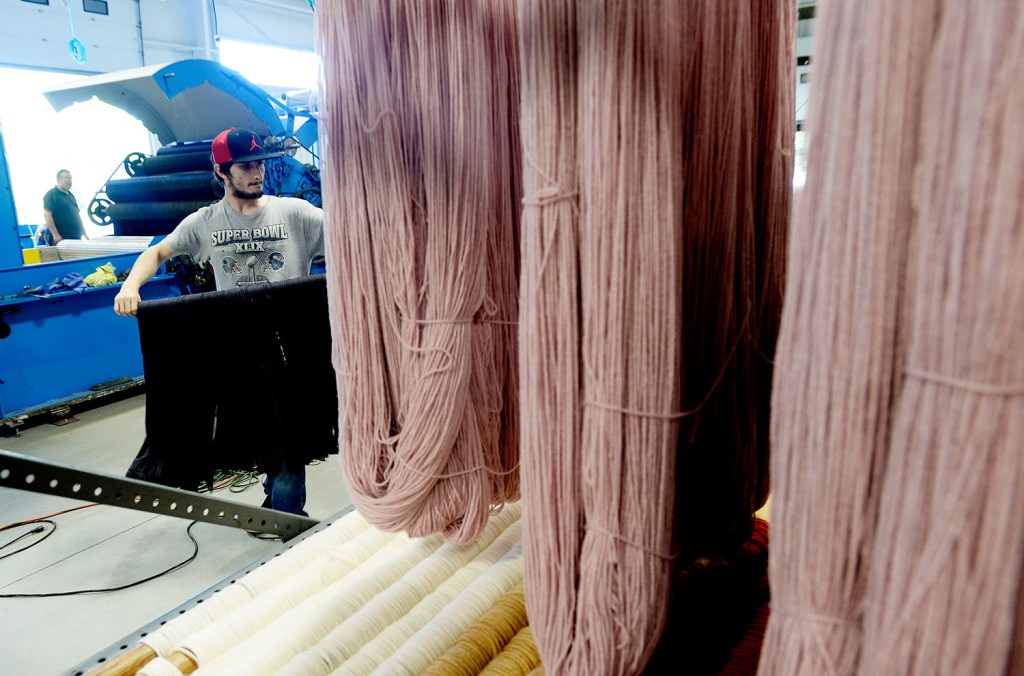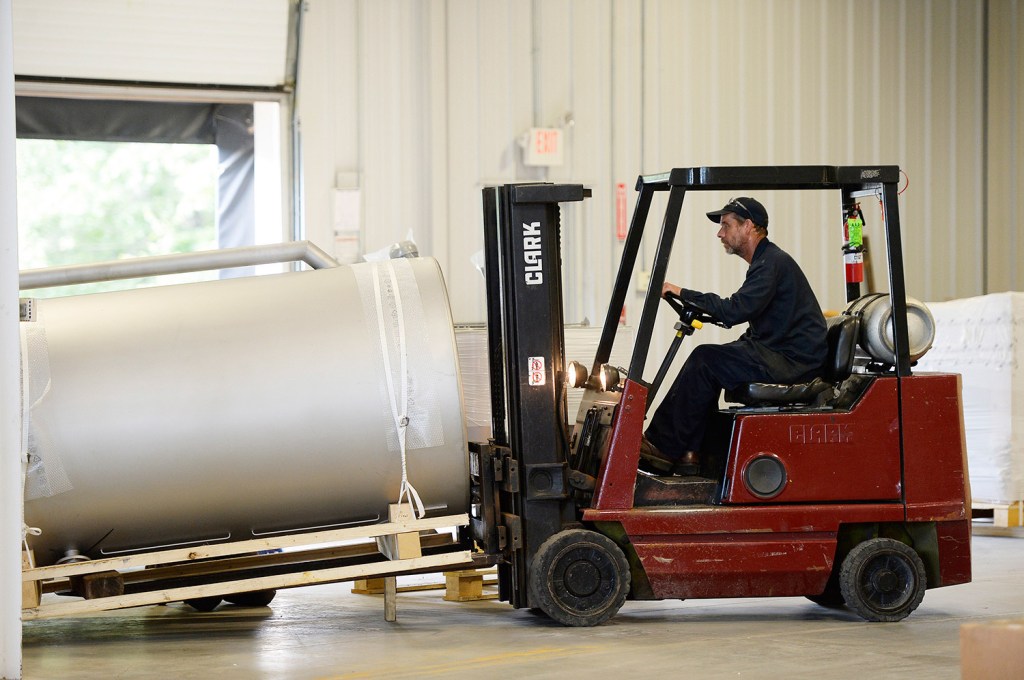Saco River Dyehouse has taken a major step toward its goal of becoming the premier dyehouse-for-hire in the country.
The company, which dyes wool and other fibers for a variety of customers, has invested $750,000 in a suite of new machinery from Italy that will allow the dyehouse to quadruple its production capacity and greatly expand its client base, said Managing Director Claudia Raessler.
“We started in 2012 dyeing 2,000 to 4,000 pounds of yarn a month. We’re at 8,000 to 10,000 pounds a month now,” Raessler said. “We expect to be dyeing 30,000 pounds a month by the end of 2016.”
The new dyeing and winding equipment, by Italian manufacturers Loris Bellini and Fadis, represents the latest in computer-controlled textile machinery. Raessler said it will allow Saco River to expand beyond its existing client base of craft yarn makers to include manufacturers of home products and apparel.
The new equipment also will be far more efficient and will use about one-tenth the amount of water per pound of yarn dyed, she said.
“The best (research and development) around textiles is still in Italy,” Raessler said. “Europe pays a lot of attention to space issues, so they think a lot about equipment design. They think a lot about environmental impact.”
With the new equipment, which was still being installed and tested Wednesday, the company will be able to boost its annual sales from the current $750,000 to about $3 million, she said.
Saco River was opened in December 2012 by parent company Maine Textiles International LLC in the Pepperell Mill Complex in Biddeford, occupying the space formerly inhabited by WestPoint Home, a blanket manufacturer that closed in 2009. WestPoint’s closure had temporarily brought an end to Biddeford’s 150-year textile manufacturing tradition.
The idea to bring the dyehouse to Maine was sparked the previous spring, after the closure of the JCA dyehouse in Pepperell, Massachusetts, forcing Maine yarn producers to look elsewhere for dyeing services. Raessler, a licensed attorney who already owned the alpaca fiber company SuriPaco, contacted Pam Allen of Portland yarn-maker Quince & Co. about the possibility of acquiring JCA’s assets and opening an organic dyehouse in Maine. After the JCA dyehouse closed, Allen had been forced to ship her wool yarn to Philadelphia to be dyed, which was more expensive.
Allen and Raessler teamed up with Raessler’s husband, Ken, and Nick Burnett to form Maine Textiles and run the dyehouse. They needed a large space to accommodate the business and quickly focused their search on the Pepperell Mill Complex in Biddeford.
This year, the company relocated to the former Franklin Fueling Systems facility at 34 Spring Hill Road in Saco. The 25,000-square-foot space is already packed with equipment and racks of drying yarn.
“We filled this up pretty quick,” said Justin Russo, the company’s director of business development.
Russo said the ultimate goal has been to be able to produce dyed fibers for companies that manufacture apparel and other textile products on a commercial scale. The JCA equipment, which Saco River plans to continue using, is designed to handle thicker yarns made of organic fibers such as wool, ideal for craft yarns but not a good fit for textiles made of thinner natural and synthetic fibers.
The new dyeing machine, essentially a giant pressure cooker, can handle any type of fiber and can dye up to 500 pounds of yarn at a time, Russo said. Saco River also has purchased a row of new winding machines to quickly wind the dyed yarn onto spools, a large drying machine to dry fibers more quickly, and a massive “de-hairer,” which combs out all but the finest of fibers to make high-end yarns of alpaca, buffalo, yak and cashmere.
“I think this is one of four machines (of its kind) in the world,” said Saco River Sales Coordinator Eliza Williams. “It’s the only machine in the United States.”
Staffing the company with skilled textile workers has been a challenge in Maine, Raessler said. Despite the state’s long history of textile manufacturing, most of Maine’s expert textile-makers have either retired or moved away, she said.
Saco River has literally scoured the globe to locate its workforce, which currently numbers about 20, Raessler said. About 70 percent of the company’s workers are immigrants, many of whom are still learning English.
“I am just really in awe of everyone in this team,” she said. “They have just come together and worked incredibly well.”
Raessler also praised the numerous organizations in Maine that have helped Saco River with grants and other sources of funding to help the dyehouse progress to where it is today. Those organizations include the Biddeford-Saco Area Economic Development Corp., Coastal Enterprises Inc. and the Maine Technology Institute.
“I give credit to everybody from a funding source who drank the Kool-Aid,” she said. “I don’t think small. I want to be the best commissioned dyehouse in the country.”
Send questions/comments to the editors.


